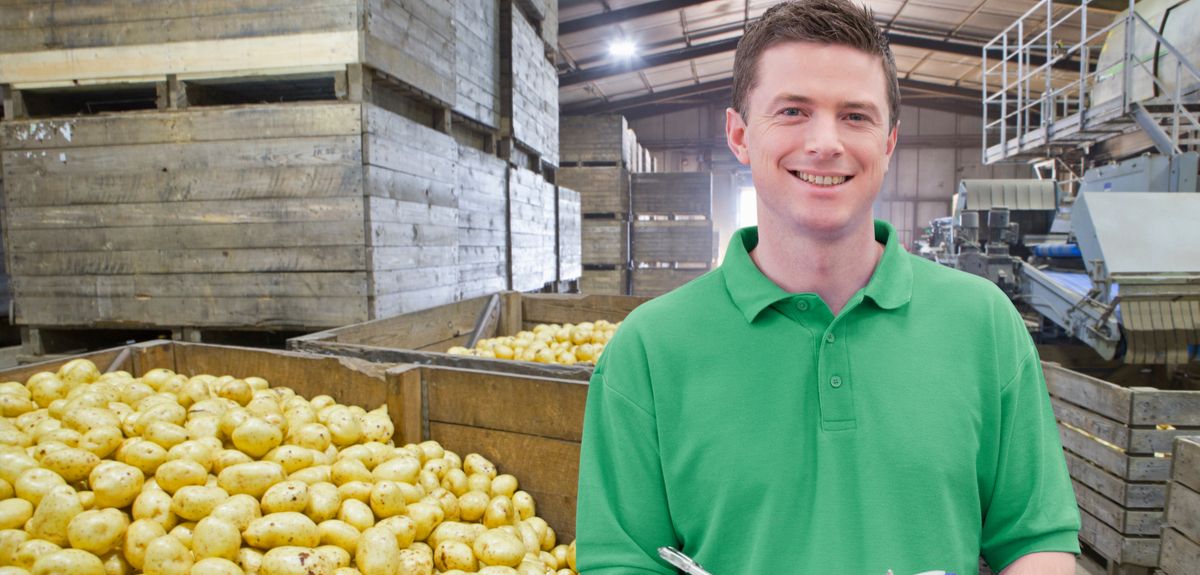
COVID-19 and the post-Brexit immigration system
The COVID-19 pandemic has increased public awareness of the extent to which society - from farms to care homes - relies on the availability of a low-wage workforce.
The COVID-19 pandemic has increased public awareness of the extent to which society - from farms to care homes - relies on the availability of a low-wage workforce
Media coverage during the coronavirus crisis has, in many cases, highlighted the risks to which these workers are exposed, alongside the low pay and difficult working conditions they endure (such as lack of personal protective equipment). In recent months, delivery drivers, food producers, and supermarket staff have been recognised as ‘key’ workers. Many of those lower-waged occupations, which have been acknowledged as essential in the crisis, are heavily dependent on migrant workers.
Many of those lower-waged occupations, which have been acknowledged as essential in the crisis, are heavily dependent on migrant workers
In this context, it is important to ask if, and how, future immigration policies should take account of the lessons from the COVID-19 pandemic? This question is important for countries around the world but, at the moment, it is particularly relevant for the UK.
The COVID-19 emergency comes at a time when the UK is on the verge of shifting to a new immigration system, when the Brexit transition period comes to an end.
The selection process of immigration systems and essential workers
Immigration systems in high-income countries are typically more open towards workers in higher-paid jobs, while imposing restrictions on those coming to work in lower-paid occupations.
For example, work visas for high-skilled jobs are less likely to be restricted by numerical caps and requirements to look locally first for workers. They will often have a path to permanent residence and citizenship. By contrast, employers recruiting migrant workers in low-skilled jobs will face more complex bureaucracy, such as detailed regulations on pay and working conditions. There may be a maximum stay and no path to permanent status. So, in many cases, immigration into ‘essential’ but low-pay jobs is strongly restricted.
In many cases, immigration into ‘essential’, but low-pay jobs, is strongly restricted
Currently, the UK imposes strong restrictions on immigration for work purposes from outside the European Union, while EU nationals enjoy free movement for work purposes. As a consequence, during the pandemic, EU nationals have played major roles in ‘essential’ low wage sectors of the economy. For example, a large majority of seasonal harvest workers in the UK come from the EU. This workforce is essential, since significant labour shortages in the sector could threaten the UK food supply.
However, free movement will soon end and the UK Government is proposing to restrict substantially the immigration of EU nationals into jobs that are not considered high-skilled.
How would this affect the supply of essential workers in the UK?
Many essential workers from the EU, including NHS nurses and doctors, are likely to be eligible for visas under the proposed immigration system. Obviously, there is a question of whether as many would still be interested in living in the UK, given the different immigration status conditions. We will soon find out. But many other essential workers from the EU, such as those in social care or food manufacturing, are less likely to qualify for a visa.
Many essential workers from the EU, including NHS nurses and doctors, are likely to be eligible for visas under the proposed immigration system...But many other essential workers from the EU, such as those in social care or food manufacturing, are less likely to qualify for a visa
Estimates vary of the share of current workers in essential occupations who do not meet the proposed post-Brexit visa requirements. The discrepancy comes, in part, because there is no unique definition of an ‘essential’ worker.
In a recent paper, I wrote with colleagues Madeleine Sumption and Marina Fernandez-Reino, we find that 53% of EU-born and 42% of non-EU-born full-time employees, in essential occupations in the UK, do not meet the proposed requirements for a work visa. The Migration Observatory updated these numbers using a slightly different definition provided by the UK’s Office for National Statistics and found similar shares: 58% for EU-born and 49% for non-EU-born workers.
Will the pandemic change UK policymakers’ views about how essential workers should be treated in the post-Brexit immigration system?
The current pandemic might convince some policymakers that some industries have strategic value and need special access to a sufficient workforce - so they are in a position to provide essential goods and services in case of a new pandemic or a second wave.
The current pandemic might convince some policymakers that some industries have strategic value and need special access to a sufficient workforce - so they are in a position to provide essential goods and services in case of a new pandemic or a second wave
This could see support for that rationale in post-Brexit immigration policy planning. But the current pandemic provides little guidance on more fine-grained questions, such as which industries should be considered ‘strategic’, in terms of the immigration system.
Others might point out that the current emergency has led to worker lay-offs in other industries – so there is more potential than usual to hire within the domestic labour market. But, while this sounds like a straightforward solution, in the past, even in periods of high domestic unemployment, many employers have still preferred to recruit from abroad. The reasons behind those preferences are complex, but there is evidence that migrants are particularly targeted for jobs that are riskier or require greater physical intensity.
Deciding between these, and other options, is not straightforward and involves a major degree of subjectivity. Expect much more debate on these issues over the next few months.
Carlos Vargas-Silva, Director and Associate Professor, Centre on Migration, Policy and Society (COMPAS), University of Oxford